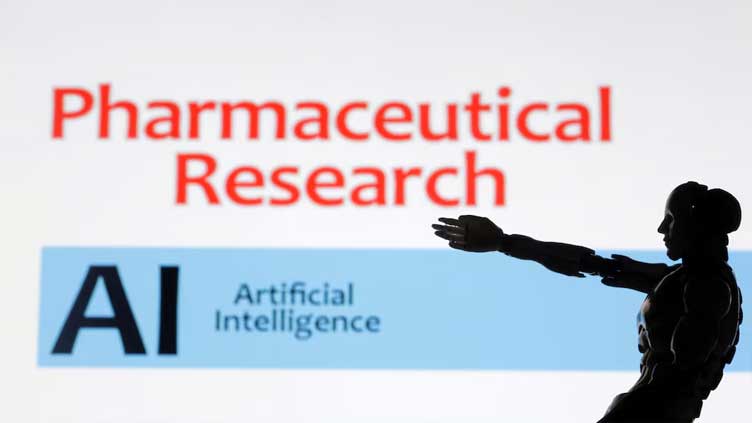Nvidia-backed AI firm Iambic unveils drug discovery 'breakthrough'

Technology
Nvidia-backed AI firm Iambic unveils drug discovery ‘breakthrough’
LONDON (Reuters) - Biotech firm Iambic Therapeutics unveiled on Tuesday what it says is a breakthrough artificial intelligence model that could drastically reduce the time and money needed to develop new drugs.
A growing number of tech startups are using AI to advance pharmaceutical research. Iambic, which has previously won investment from tech giant Nvidia, published details of its new AI drug discovery model, named "Enchant".
Enchant was trained on large troves of pre-clinical data, derived from laboratory tests conducted on drugs before they were ever tested on humans. The model has been designed to predict how a given drug will perform at the earliest stage of development.
In a white paper published by Iambic, Enchant showed a high degree of accuracy when predicting how well the human body would absorb certain drugs, with results cross-referenced to real-world outcomes.
The company said its model set a new benchmark, with a 0.74 accuracy prediction score. By comparison, earlier models had only achieved as high as 0.58.
Iambic co-founder and chief technology officer Fred Manby told Reuters that researchers using Enchant could potentially halve the investment needed to develop some pharmaceuticals, as they could see how successful a drug is likely to be at the earliest stage.
“The cost of getting a product to market is often quoted at around $2 billion, and a lot of that isn’t about the programme costs, but the failure rates. The costs of getting a product all the way to a marketed medicine derive from a high chance of late-stage failure," he said.
“If you make a 10% improvement in each stage of clinical development, you would halve the cost, because it applies cumulatively.”
Frances Arnold, who won the Nobel Prize in Chemistry in 2018 and sits on Iambic's board, told Reuters that the development represented a major advance in the use of AI for drug discovery.
Citing Google DeepMind's AlphaFold program, which recently won its developers the Nobel Prize in Chemistry, Arnold said Enchant addressed a different challenge in the drug discovery pipeline.
"AlphaFold predicts the 3D structure of how a molecule binds to a protein target, but the structure is not enough," she said.
"The success of a drug candidate is determined by its pharmacokinetic, efficacy, and toxicity properties. Enchant addresses these distinct and important challenges."


